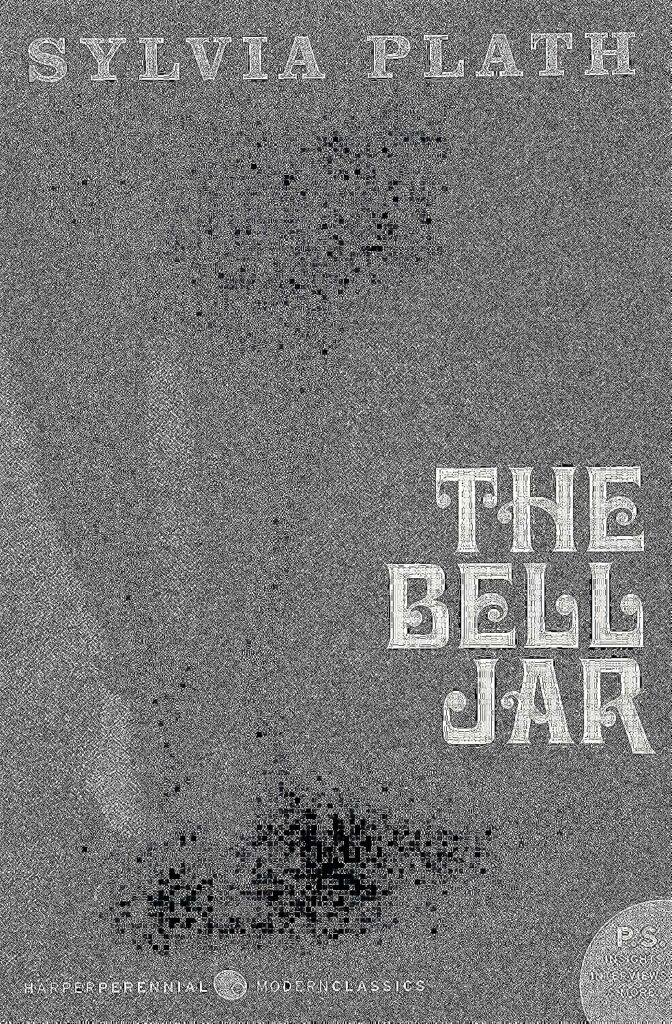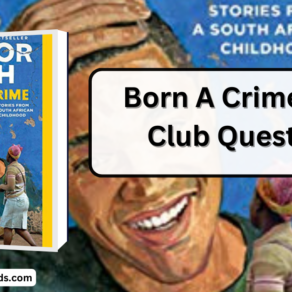I am a huge an of Sylvia Plath’s literary work. In fact, reading her works, especially her only novel The Bell Jar, feels like stepping through the looking glass of the 1950s psyche, exploring the intertwining vines of mental health and societal pressure. On my blog today, I’m peeling back the layers of this haunting American classic, not just to lay bare the poignant journey of Esther Greenwood, but to also foster a deeper conversation around the themes that pulsate through the novel’s veins.
I’ve taken a twofold approach in unpacking the treasures within “The Bell Jar.” First, I’ve provided an extended summary of the book that captures its essence, delving into the emotional and psychological landscapes that Plath so artfully portrays.
Moving from summary to dialogue, I’ve curated a series of book club questions designed to spark insightful discussions. Whether you’re gathering with your reading group over coffee or sharing thoughts online, these questions aim to open up avenues of debate and personal reflection that will deepen your understanding of the novel.
Lastly, I’ve selected a handful of quotes from the text that I found particularly striking. These lines are the glowing embers of Plath’s narrative fire, which I believe will kindle a profound appreciation for her work. They serve as waypoints that guide us through the thematic labyrinths of the novel and illuminate the path of our discussion.
From the gripping summary to the thought-provoking questions and the evocative quotes, what I’ve strived to create here is an ode to a masterpiece that continues to whisper its relevance into the corridors of the present day.
The Bell Jar Summary
“The Bell Jar” is a poignant and deeply introspective novel by Sylvia Plath that delves into the mind of Esther Greenwood, a character whose life parallels Plath’s own experiences to an extent. As a narrative, it’s both a coming-of-age story and a distressing journey through mental illness, set against the backdrop of the 1950s—a period often characterized by its conservative social norms and rigid gender roles.
The book opens with Esther winning a summer internship at a prestigious magazine in New York City. It’s an opportunity that many young women of her age would envy, but for Esther, it becomes the trigger for her spiraling descent. The glitter of the city and the glamour of her work do little to impress her, and she finds herself alienated, unable to fit into the bustling social scene that her peers seem to navigate with ease. The disconnect she feels is palpable, and the reader is drawn into the isolated bubble that Esther finds herself trapped within.
Throughout the narrative, we see Esther grapple with her identity and the expectations placed upon her as a woman. There’s a constant tension between who she is expected to be and who she wants to be. This battle is exacerbated by her encounters with men, the pressures of virginity, and the limited career choices available to women, all of which contribute to her sense of entrapment.
Plath’s prose is both beautiful and haunting, capturing the essence of Esther’s turmoil. As her mental health deteriorates, Esther’s perspective on the world around her becomes increasingly distorted. The bell jar itself is a metaphor for her suffocating depression, a glass structure that distorts her view of the world, trapping and isolating her from others.
What’s striking about the book is how Plath manages to convey Esther’s mental breakdown in a way that feels not only real but relatable. The reader is drawn into Esther’s psyche, experiencing her disconnection and her struggle against the invisible forces that push her towards the edge. Plath explores the theme of mental illness without sensationalism—Esther’s condition is neither glamorized nor dramatized, but presented with brutal honesty and a clarity that is often missing from discussions of mental health.
Plath’s narrative voice is fresh and distinct, and it’s this freshness that has kept “The Bell Jar” relevant decades after its publication. Esther’s experiences echo the struggles of many who grapple with their mental health, societal pressures, and the search for identity. In a world that often feels like it’s filled with bell jars of various forms, Esther’s story remains a powerful example of the individual fight to break free and find solace in authenticity.
The additional materials in the P.S. edition of “The Bell Jar” are treasures in themselves, offering deeper insights into Plath’s writing process, her life, and the novel’s historical context. The interviews and recommended readings provided can serve as a guide for readers who wish to explore similar themes and subjects in literature.
Plath’s only novel, “The Bell Jar” continues to resonate with readers, serving as a mirror to our own fears and an exploration of the fragile human condition. It stands as a powerful emblem of the struggle for self-determination and the desire to escape the invisible confines that society often imposes.
The Bell Jar Book Club Questions
When you’re crafting questions for a book club discussion about “The Bell Jar,” you’ll want to hit on the key themes and elements of the novel while also leaving space for personal reflection and analysis. Here are some thought-provoking questions that could stir a lively and insightful conversation:
- Introduction to Themes: How does Sylvia Plath introduce the themes of mental health and societal expectations in “The Bell Jar”? Can you pinpoint the moment when Esther’s perception of her world begins to change?
- Esther’s Character: Esther Greenwood is a complex character with many layers. How do your feelings about her evolve throughout the novel? Did you find her relatable or distant, and why?
- Mental Health Representation: “The Bell Jar” is often cited for its depiction of mental illness. Do you think Sylvia Plath’s portrayal of Esther’s descent into mental illness was effective and authentic? Why or why not?
- The Metaphor of the Bell Jar: Discuss the metaphor of the bell jar as it applies to Esther’s experiences. Do you think this metaphor is still relevant today? How do you interpret its meaning?
- The Role of Women: Consider the time in which the novel is set. In what ways does the book address the role of women in society during the 1950s? How does Esther confront these expectations?
- Symbolism: What other symbols stood out to you in the novel besides the bell jar? How do they contribute to the overall narrative and themes?
- The Setting: How does Plath use New York City as a backdrop for Esther’s breakdown? Does the setting act merely as a backdrop, or does it play a more symbolic role in the novel?
- Secondary Characters: How do the secondary characters, like Mrs. Greenwood, Buddy Willard, and Dr. Nolan, influence Esther’s life and decisions? What do they represent to her?
- Treatment of Mental Illness: How do the methods of treating mental illness described in the book compare to modern approaches? Have we made progress, or do some of the novel’s depictions still feel familiar?
- The Ending: Without giving away any spoilers, what are your thoughts on the ending of the novel? Did it provide closure, or did it leave you with more questions?
- The Author’s Perspective: Knowing Sylvia Plath’s own history, how much do you think this novel is autobiographical? Should the novel be read strictly as a work of fiction, or as a semi-autobiographical account?
- Cultural and Societal Impact: Why do you think “The Bell Jar” has continued to be such an influential and widely-read book since its publication? What impact does it have on today’s conversations about mental health?
- Personal Reflection: Were there any parts of Esther’s story that you found particularly moving, disturbing, or enlightening? Has this book changed your perspective on anything?
- Literary Devices: Plath is known for her poetic prose. How do Plath’s literary devices, such as imagery, metaphor, and simile, enhance the narrative? Can you share some examples that stood out to you?
- Contemporary Relevance: How might Esther’s story be different if set in today’s world? Consider the advancements in mental health treatment and changing societal expectations.
The Bell Jar Quotes
Here are some popular quotes from The Bell Jar as rated by readers in Goodreads:
“I saw my life branching out before me like the green fig tree in the story. From the tip of every branch, like a fat purple fig, a wonderful future beckoned and winked. One fig was a husband and a happy home and children, and another fig was a famous poet and another fig was a brilliant professor, and another fig was Ee Gee, the amazing editor, and another fig was Europe and Africa and South America, and another fig was Constantin and Socrates and Attila and a pack of other lovers with queer names and offbeat professions, and another fig was an Olympic lady crew champion, and beyond and above these figs were many more figs I couldn’t quite make out. I saw myself sitting in the crotch of this fig tree, starving to death, just because I couldn’t make up my mind which of the figs I would choose. I wanted each and every one of them, but choosing one meant losing all the rest, and, as I sat there, unable to decide, the figs began to wrinkle and go black, and, one by one, they plopped to the ground at my feet.” ― Sylvia Plath, The Bell Jar
“I took a deep breath and listened to the old brag of my heart. I am, I am, I am.” ― Sylvia Plath, The Bell Jar
“If you expect nothing from somebody you are never disappointed.” ― Sylvia Plath, The Bell Jar
“I felt my lungs inflate with the onrush of scenery—air, mountains, trees, people. I thought, “This is what it is to be happy.” ― Sylvia Plath, The Bell Jar
“The silence depressed me. It wasn’t the silence of silence. It was my own silence.” ― Sylvia Plath, The Bell Jar
“I shut my eyes and all the world drops dead;
I lift my eyes and all is born again.” ― Sylvia Plath, The Bell Jar
“If neurotic is wanting two mutually exclusive things at one and the same time, then I’m neurotic as hell. I’ll be flying back and forth between one mutually exclusive thing and another for the rest of my days.” ― Sylvia Plath, The Bell Jar
“The trouble was, I had been inadequate all along, I simply hadn’t thought about it.” ― Sylvia Plath, The Bell Jar
“To the person in the bell jar, blank and stopped as a dead baby, the world itself is a bad dream.” ― Sylvia Plath, The Bell Jar
“That’s one of the reasons I never wanted to get married. The last thing I wanted was infinite security and to be the place an arrow shoots off from. I wanted change and excitement and to shoot off in all directions myself, like the colored arrows from a Fourth of July rocket.” ― Sylvia Plath, The Bell Jar
“I told him I believed in hell, and that certain people, like me, had to live in hell before they died, to make up for missing out on it after death, since they didn’t believe in life after death, and what each person believed happened to him when he died.” ― Sylvia Plath, The Bell Jar
“If you love her”, I said, “you’ll love somebody else someday.” ― Sylvia Plath, The Bell Jar
“So I began to think maybe it was true that when you were married and had children it was like being brainwashed, and afterward you went about as numb as a slave in a totalitarian state.”― sylvia plath, The Bell Jar
Final thoughts
As I conclude this post on Sylvia Plath’s marvelous novel “The Bell Jar,” I hope that the shared insights, book club questions, and poignant quotes have served to deepen your appreciation for Sylvia Plath’s literary masterpiece. In a way, I view thi this exploration as a tribute to Plath’s enduring legacy, a legacy that challenges us to confront the complexities of the human psyche with empathy, understanding, and courage. May our reflections on Esther’s story inspire conversations and introspections as intricate and revealing as the bell jar itself.







